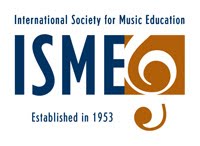Jere T. Humphreys
School of Music, Arizona State University, Tempe, Arizona,USA
The human brain's limbic system becomes highly activated during music participation. Because the limbic portion of the brain developed early in the evolutionary process, it is likely that musical behaviors developed early also, perhaps even before speech, which is controlled by the cerebral cortex, the last major part of the brain to evolve. The striking fact that music became a part of all known cultures, past and present, adds credence to the hypothesis about music's early evolution.
Despite its universality, the only truly universal characteristic of music is its existence; indeed, music and musical activities vary so widely that it is difficult, some say impossible, to identify universal musical traits and practices among the world's cultures. Regardless, it appears that music and musical behaviors developed in various ways at different times and in different places throughout the process of human evolution. It also appears that music and music participation mean different things in different cultures, as well as different things among subcultures and even individuals within cultures.
More than three decades ago, Bennett Reimer set forth a philosophy of music education with which few music educators would disagree: "[T]he nature and value of music education are determined by the nature and value of the art of music." Since Reimer wrote those words, music educators seeking to understand and explain music education have written copiously about "the nature and value of the art of music."
Much writing about music focuses on its sonic qualities, and on the important related topic of music as a means of aesthetic expression. This is valuable work, because just as surely as aesthetics is a central feature of music, music's aesthetic meanings should be central to music teaching and learning.
Far less has been written about other aspects of music, especially how it functions in society other than as a means of aesthetic expression. These "other" ways in which various cultures use music, and music's effects on people, should be considered as well. Furthermore, many writers have tended to treat music as a monolithic phenomenon, whereas in reality it occurs in an almost infinite variety of types, which has led some writers to use the term "musics," plural. For all these reasons, I would alter Reimer's statement to read: "The nature and value of music education are determined by the nature and value of musics and musical practices."
When considering the "nature and value" question, we should remember that music probably evolved as a primary means of expression and communication, and that today it continues to function in similar ways. Humans express thoughts and feelings through music that can be expressed and communicated in no other ways. For that reason, music is unique among human behaviors and in the human experience generally.
At the most basic level, music as a psycho-social phenomenon could be described as an important, apparently essential means of establishing and maintaining our humanity through learned and shared (as opposed to instinctual) behaviors. It appears to be a unique, learned means of abstract communication through which humans not only express thoughts and feelings, but through which they can receive the expressed thoughts and feelings of others. Some of these thoughts and feelings are aesthetic in nature, whereas others involve the signaling of intended relationships (including opposition), not only to one's own culture, but to the myriad subcultures and ideas that make up an individual's network of social identifications. In addition to identifying with a specific music or musics, individuals (including music participants) often identify with one or more musical groups or musical activities, which constitutes a direct form of musical social identification.
The (apparent) fact that music evolved early and became a culturally universal practice suggests that it is indeed a human need, whatever the cause(s). At this point, we cannot give a definitive answer to "the nature and value of music" question, because musics and musical practices vary so widely throughout the world that their "nature and value" defy definitions. Nevertheless, advocates could emphasize that there should be no need to justify the inclusion of music in the school curriculum beyond the fact that it is a universal human need and practice, leaving scholars and others free to continue to speculate about the reasons why this is so.
The wisest course for society and its music education profession might be to expend less energy and fewer resources devising universal rationales and philosophies for music education (why teach music), one-size-fits-all music curricula and curriculum guidelines (what music and musical behaviors to teach), and elaborate, prescriptive teaching methods (how to teach music). We should probably be less concerned about the why's, what's, and how's of music teaching—such as whether music is taught through performance, listening, or composition—than whether it is taught at all. For all these reasons, advocates of music education should work to facilitate the teaching of musics and musical practices in as many venues as possible throughout the world.
Music belongs to a very small group of sociologically universal human practices. As such it is, by necessity, transmitted from generation to generation in every culture. In the world's less complex cultures, this transmission takes place without formal instruction. In the world's more complex cultures, masses of children are taught in formal schools so as to free most adults for other tasks. Formal schooling also seeks to ensure systematic coverage of subjects deemed too important to be left to chance in cultures in which most adults are preoccupied with jobs other than rearing and educating their and their neighbors' children.
Why teach music in schools? Because it is a unique, exceedingly powerful means of aesthetic and social expression that is central to our humanity. In cultures complex enough to need formal schooling practices, formal music instruction is essential because musics and musical practices, together with a few other subjects, are simply too important to be left to chance.

No comments:
Post a Comment